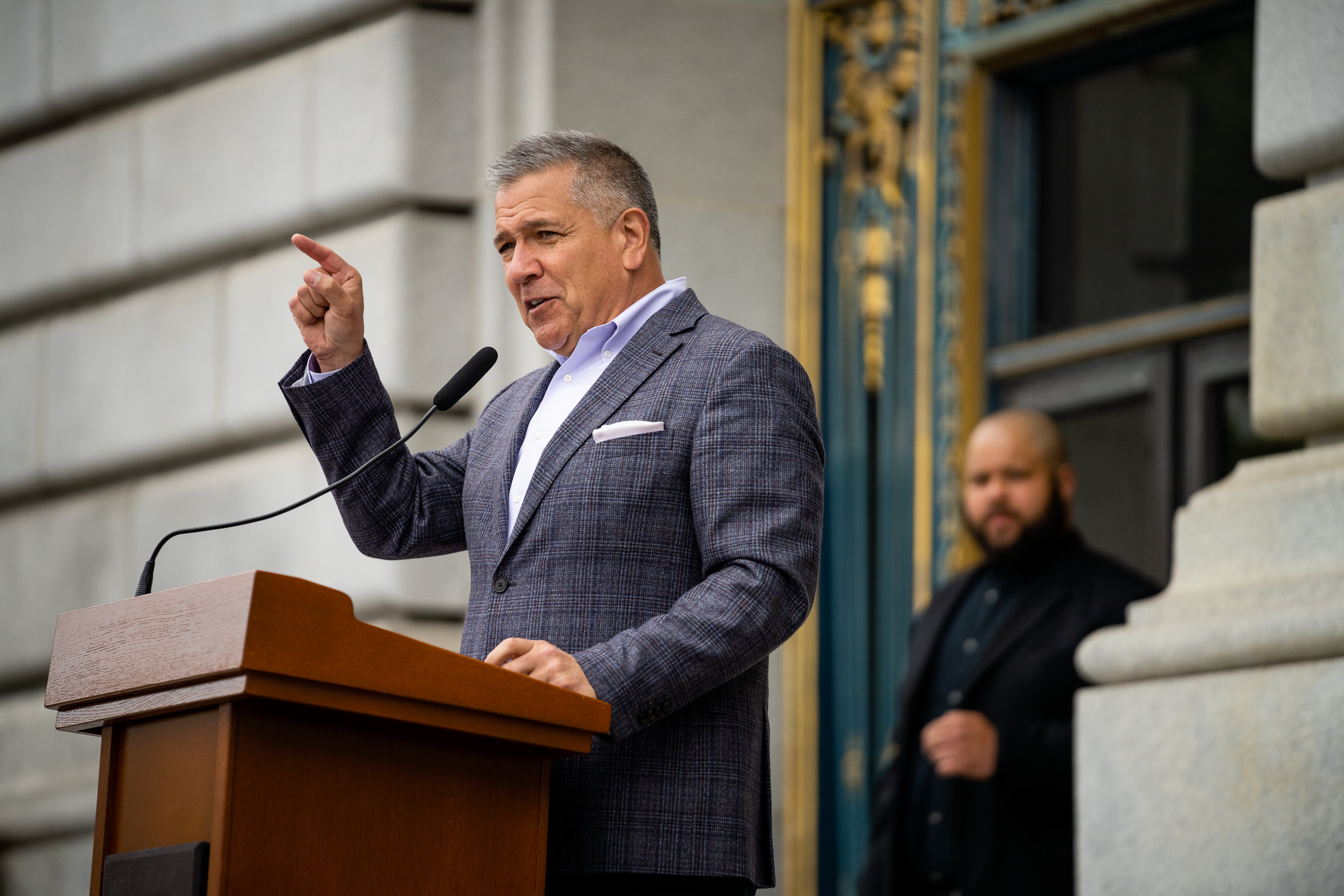A bill introduced Monday could see San Francisco welfare recipients being paid if they steer clear of illicit substances.
Supervisor Matt Dorsey proposed the “Cash Not Drugs” pilot program Monday as a compliment to Proposition F, a ballot measure from March that requires drug screening and treatment for welfare recipients if they are to continue receiving monetary assistance.
For those who test negative for drugs, Dorsey’s plan would provide an extra $400 a month. Recipients who will be affected by Proposition F — single adults without children — currently receive $712 per month through the County Adult Assistance Program. Under Dorsey’s bill, those people would now receive up to $1,112 when they test negative for drug use. If passed by the Board of Supervisors, the pilot would go into effect for three years, with its effectiveness overseen by an independent academic researcher.
“This is more carrot than stick,” said Dorsey, who himself is a recovering drug user. “It’s a pretty promising approach.”
Dorsey’s program has the backing of Mayor London Breed, who placed Prop. F on the ballot.
The mayor’s ballot measure — which will go into effect Jan. 1 — passed by a hefty margin this spring, with 58% of voters in support.
The bill saw a deluge of cash to help it pass, with its advocates raising more than half a million dollars, including from tech executives such as Ripple chairman Chris Larsen. Those opposed to the measure, who argued it would take away vital assistance from the city’s most vulnerable, raised around $37,000.
The bill’s passage comes amid skepticism over the city’s plan to combat the drug-related overdose crisis, which has taken the lives of thousands of San Franciscans over the last five years. Some leaders, including the mayor, have taken a swing at more progressive drug treatment strategies, including “harm reduction,” an approach that tries to lessen the adverse effects of drug usage through needle exchanges or safe consumption sites.
The plan Dorsey announced Monday is part of a drug treatment strategy known as “contingency management,” which rewards individuals for positive behavior as a reinforcement mechanism. The San Francisco Department of Public Health oversees several similar programs on a small scale. Dorsey said the costs of the program could be reimbursable through Medi-Cal.
Keith Humphreys, a Stanford professor who worked on drug policy for the Obama administration, said there is evidence that the contingency management approach can make an impact.
“It has been done all over the country,” Humphreys wrote in a text message. “There are over 150 clinical trials supported by the National Institute of Health that have shown positive effects.”
The city’s welfare program, known as the County Adult Assistance Program (CAAP), has about 5,700 recipients. Homeless residents can also receive cash assistance, though they are paid a reduced rate of $109 a month.
Dorsey told The Standard that the financial impact of his program was not immediately apparent. Dorsey said the payment of $400 a month is not set in stone, and he is instructing the city to experiment with increasing weekly payments tied to successive negative drug tests. He said if the program is successful, he could see it being expanded to more CAAP recipients as a preventative measure rather than merely a treatment strategy. If every person in CAAP succeeded in Dorsey’s plan with the $400 payout, it would equal roughly $27 million in extra costs for the city, though the likely price tag is much smaller.
“I would rather get this right and scale up,” said Dorsey, who noted that the city is going through a tough budgetary season. “But let’s get it right first.”
